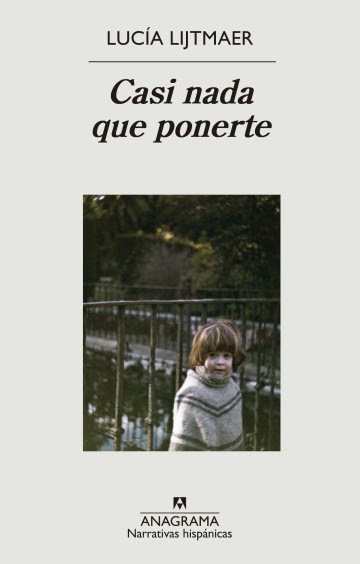
Original language: esstoreroom
Year of publication: 2023 (reissue of a first text published in 2016)
Valuation:quite recommended
Lucía Lijtmaer (this introduction is starting to get somewhat repetitive) is a frequent presence in the media. As a critic, she is something between a talk show host in certain alternative circuits, as a cultural agitator. Of course, in her articles and her books, some of which have already been discussed here with a strong opinion by Beatriz: a must read. I’m not going to go that far with this, her first published work (appropriately rescued by Anagrama), but I have to say that the surprise has been very pleasant. Far from finding condescending prose prone to exhibition, it is an honest, almost daring exercise for a first work, which encompasses several styles.
To begin with, we could relate Almost nothing to wear with a certain literary current that has to do with the search for origins by those who live far from their places of origin. Lijtmaer calls herself a Catalan born in Argentina with a Polish surname (and Jewish, she adds) and although the political tone is not the center of the story, let’s say that it is a constant and determined subliminal presence because the story is referentially situated in the consequences of successive waves caused by instability in Argentina: that of dictatorships, that of playpen. Lijtmaer returns to his country of birth to report the story of Simón and Jorge, a couple of businessmen in the world of fashion who are already in the decline phase of their business and whom, along with other people (models, clients) take testimony not only of the evolution of the store in which they installed it but of the itinerary of a country as rich and attractive as it is prone to convulsions. The report, basically made up of interviews and dialogues, is articulated around the vicissitudes of the writer on her return in 2008, the evocations of the circumstances that led to the family moving to Barcelona, not only hers but that of other Argentine families, who pepper the narrative and, gradually, justify a certain paradox: that origin may weigh on the heart, but reason weighs its own: Lijtmaer evokes that Argentina in which he has not lived but reaffirms his decision to stay as he is, which is far from her physically. Those colossal thirteen thousand kilometers are mentioned on several occasions.
All this in almost two hundred pages that are read with interest, in which Lijtmaer skillfully avoids inflammation, maintaining a lively and precise rhythm, scrupulously taking care of the forms, which rules out any hint of media opportunism. We are faced with a sincere, confident and solid narrator, whose attitude is clearly perceived between the lines, and this book is anything but frivolous and light; on the contrary, it is a pretext for a particularly accurate analysis of that nationality, Argentina, which seems to impress a certain character.
Source: https://unlibroaldia.blogspot.com/2024/04/lucia-lijtmaer-casi-nada-que-ponerte.html


